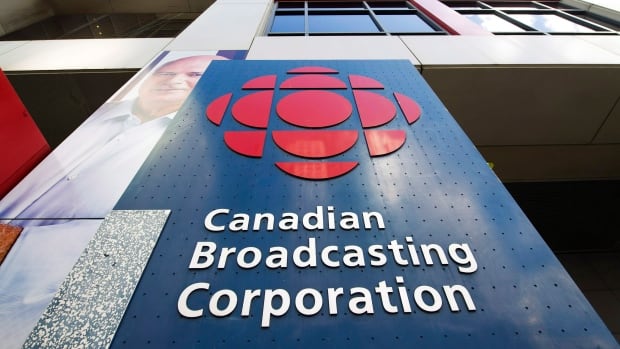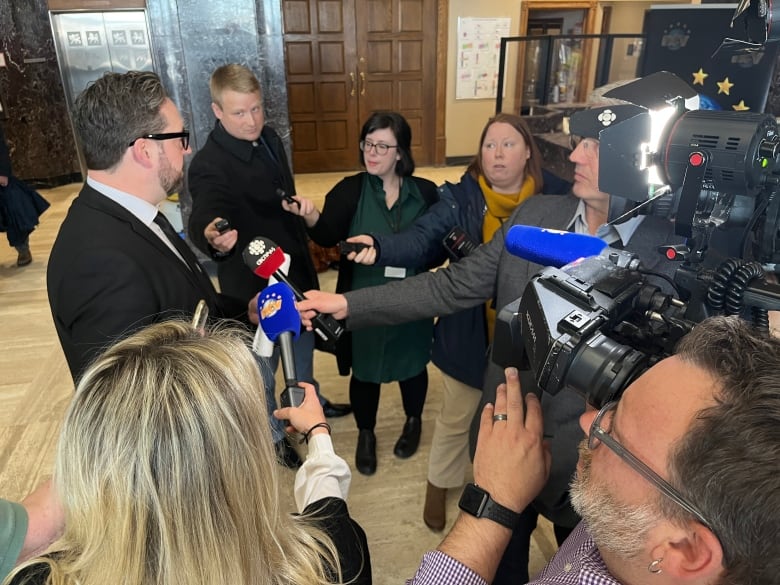
We use this editor’s blog to explain our journalism and what’s happening at CBC News. You can find more blogs here.
Last week, I received two emails from two different people within a day of each other. Each complainant told me they no longer trust CBC News journalism. Why? One complainant said we are a purveyor of “pro-Israel propaganda.” The other said our journalism is plagued by “anti-Israel bias.”
As I’ve written before, the Israel-Hamas war in Gaza is one of the most divisive stories we’ve covered in years and we see those divisions play out every day in correspondence from the audience.
We always point people to the totality of our coverage, because no single news story aims to tell the whole story of this conflict, but that rarely appeases our critics.
Trust is the only currency that matters for a news organization, so it is alarming when people tell us their trust in our journalism is shattered.
I’m buoyed, however, by independent research like this recent survey of 3,500 randomly selected adults by Pollara Strategic Insights that shows CBC/Radio-Canada remains among the most trusted news sources in Canada, while partisan publications fare quite poorly. (It did, however, note a widening trust gap for CBC based on political affiliation.) The survey also captures significant concern among Canadians about the disappearance of local news, long viewed by the CBC and other media organizations as the first place to build trust with Canadians.
The survey was conducted between June 6 and 17. Online surveys cannot be assigned a margin of error, but a comparable random sample of this size would have a margin of error of +/- 1.7 per cent, 19 times out of 20.
So why do CBC and other mainstream media outlets rank highly in trust rankings, even at a time of deep polarization, letter-writing campaigns and intense scrutiny of our coverage of the Middle East?

I believe it’s because we still value, and work very hard to live up to, the principle of journalistic impartiality. Our own research suggests Canadians care a great deal about impartiality in news coverage, equating the term “impartiality” with words such as “facts,” “truth,” “unbiased,” “showing all sides” and “not injecting one’s own opinion, judgment or emotions into the story.”
The Pollara survey appears to confirm as much, with respondents naming “accurate reporting” and “unbiased reporting” among the top factors that build their trust with a media outlet.
What is journalistic impartiality?
In recent years, the idea of journalistic impartiality has been hotly debated — but not always well understood — within our industry.
For CBC News, impartiality does not mean that there are two sides to every story. Or that we uncritically regurgitate facts and information, giving equal space to every perspective at all times. It does not mean CBC journalists are robotic stenographers, observing the world without emotion or bias. No human is without bias.
Rather, the principle of impartiality is attached to the journalism we produce and how we produce it. It’s about the process and the end product.
Impartiality is a promise to the public that the stories we broadcast and publish can be trusted as factual and accurate, based on professional reporting, fact-checking, multiple sources, vetting and layers of editorial oversight.
It is an iterative process that aims, over time, to provide a 360-degree view of an event or new facts, to proportionally surface the viewpoints of experts, partisans and people directly involved, and to allow the audience to draw its own conclusions about what’s being reported.
Impartiality is also a promise to the public that we are not beholden to any agenda, special interest or personal interest. The journalism we produce is motivated only by our commitment to serving the public interest.
Simply put, impartiality means that when a CBC journalist is assigned to report on something, their story has not been pre-written or preordained. Yes, we bring our whole selves to our journalism. Our expertise and lived experience enriches our understanding of the stories and communities we cover while helping us identify the stories CBC News is missing. We approach each story with fairness and an open mind.
That is our intended approach to everything we cover, including violence in the Middle East. As human beings, we certainly make mistakes, but far more often than not, our journalists get it right thanks to a rigorous, professional journalistic process.
When we do err, we own up to the mistake publicly and transparently, correcting the story and saying so. And if we fail to live up to our journalistic standards, including the promise of impartiality, we are held publicly accountable by CBC’s independent ombudsman.
We believe this approach is our best hope at maintaining those high trust scores, even on stories that deeply concern and divide you, the public we serve.